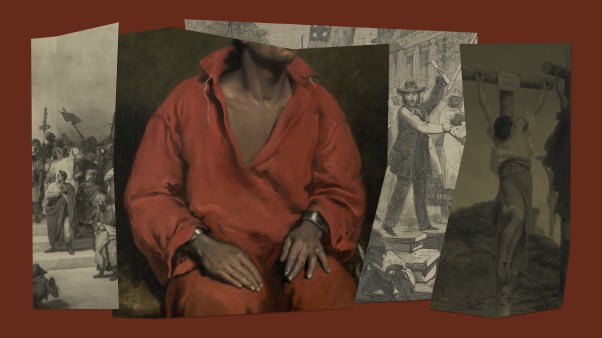No one with a good car needs to be justified,” declares Hazel Motes, the protagonist of Flannery O’Connor’s novel Wise Blood. If O’Connor were writing today, perhaps she’d have one of her characters proclaim, “No one with a good smartphone needs to be virtuous.”
Such blanket statements about a particular technology may seem unfounded. After all, you can use your car to drive to church or you can use it, as Motes does, to run over a rival preacher. You can use a smartphone to read the Bible, or you can use it to watch porn. The tool itself is neutral, right?
Wrong, argues Samuel James in his perceptive and pastoral book, Digital Liturgies: Rediscovering Christian Wisdom in an Online Age. The internet and the default practices it encourages can damage our souls despite our best intentions. Online, we reside at the center of a world designed to cater to our every wish.
Perhaps the easiest way to illustrate the dangers of this position is by reference to C. S. Lewis’s observation in The Abolition of Man that “there is something which unites magic and applied science while separating both from the wisdom of earlier ages. For the wise men of old the cardinal problem had been how to conform the soul to reality, and the solution had been knowledge, self-discipline, and virtue. For magic and applied science alike the problem is how to subdue reality to the wishes of men: the solution is a technique.”
The online ecosystem provides an incredible suite of tools to subdue reality—in apparently magical fashion—to our appetites and preferences. To the extent that, as James argues, the digital “cut[s] us off” from reality, it makes wisdom and virtue appear obsolete. James helpfully defines “Christian wisdom” as that which shows us how “to live fully aligned with ultimate reality: practical, ethical, and theological.” But if there’s an app for every problem reality throws at us, we don’t need to endure the difficult path of sanctification, self-discipline, and wisdom.
Novelty, consumption, and isolation
James thus joins a growing chorus of voices that provide a corrective to recent intellectual histories of the modern, expressive self that trace Western modes of individualism or contemporary beliefs about gender to intellectual missteps made in previous centuries. As James remarks, “the epistemological and ethical effects of technology have gone underreported in evangelical spaces.”
It’s not so much that intellectual just-so stories are wrong as that they are incomplete. How have notions about the expressive or buffered self taken hold? Not primarily through the ascendance of particular ideas, but through the powerful technologies that have developed to realize and enact the desires of the so-called “modern” self.
As Lewis points out, these desires are ancient; what’s particularly new is the technologies that make fulfilling them more plausible. Citing one example drawn from today’s headlines, James observes that “all of the … philosophy in the world could not do for contemporary people the most essential thing to bring about the gender revolution: separate the sense of self from the realm of objective reality. The web, however, can.”
Digital Liturgies views the internet as a habitat, a social architecture that invites certain behaviors and modes of engagement. The opening chapters contrast the Christian wisdom tradition with the techniques that are central to digital life. And insofar as the web “is becoming the foundational medium, the superstructure of nearly every other experience,” such techniques carry over into what remains of our offline lives.
In the book’s main section, James considers how various digital practices inculcate the doctrines of expressive individualism. Our online experiences revolve around the self: “to exist in a meaningful way in the online public square, you have to express yourself. You ‘like’ that which interests you. You ‘share’ those things that you enjoy or agree with. The center of gravity in the online world is your profile, in which you are granted a near-godlike ability to craft an identity.”
In what is perhaps the book’s strongest chapter, James argues that the web “is intrinsically pornographically shaped.” By this he doesn’t simply mean that there’s a lot of pornography on the web (which is, unfortunately, all too true), but that the web as a whole privileges novelty, consumption, and isolation. As we grow accustomed to these three features of online interactions, we become primed to see these as desirable aspects of our sexual lives.
As James notes, “The power to find anything you want to see, the access to a never-ending supply of new consumables, and the limitless freedom to make fantasy become reality—these are not just characteristics of online porn but of the online world in general.”
The web specializes in turning “the most intimate or even most elementary stuff of human life into consumable content.” (Who would have guessed that the “reaction video” would become one of the most popular YouTube genres?). We shouldn’t be surprised, then, at the wrecked relationships and endemic loneliness and anxiety that result.
At the end of each chapter outlining a particular, deformative digital liturgy, James offers a theological alternative. To counter the habits of self-expression, for instance, James reminds readers that their identity should be found in Christ. This is good so far as it goes, but these doctrinal truths cannot, on their own, counter the formative power of repeated digital practices.
I don’t want to criticize Digital Liturgies for not being a different book than it is, but it’s strange that James doesn’t seem to take seriously his own analysis of the pernicious effects that digital liturgies have. Even the conclusion offers only a brief account of the need to develop new, healthier habits, and it doesn’t point readers to any of the really excellent work on spiritual practices and Christian formation done in recent years by people such as James K. A. Smith and Tish Harrison Warren.
Part of the problem may be that James doesn’t want to alienate readers by sounding like a member of that much-maligned group—the Luddites. So at the outset, he clarifies that we don’t need to log off the internet; “rather, by identifying how the web shapes us, we can use these technologies more deliberately, more wisely, and more Christianly.” He returns to this theme at the end, reiterating that “this is not a book telling you to delete your accounts and throw away your devices. The key is to understand how digital technology affects us and to engage with it accordingly.”
Unfortunately, this book says very little about what wise engagement might entail. In principle, I agree with James that Christians are not necessarily obliged to log off the internet (though this may well be a calling for some). But given the web’s tendency to consume our time and profoundly shape our lives, most of us need to radically limit our online activities.
Banding together for embodied life
Just as leading car-centric lives affects our sense of self and community, accessing the internet involves real moral risks, ones that many of us won’t be able to avoid entirely in a world where these technologies have become what theologian Ivan Illich terms “radical monopolies.”
But in the same way that New Urbanism and other movements have tried to imagine how we might arrange our lives to be less dependent on cars, so there is a growing movement of people and organizations imagining ways of moving the internet to the margins and ordering our lives around better liturgies.
Christians need to say no to unfettered, frequent engagement online—very few people really need an internet-enabled smartphone—and yes to counter-liturgies that conform our souls to reality by inculcating disciplines and virtues. Recent books such as Andy Crouch’s The Tech-Wise Family, Justin Whitmel Earley’s The Common Rule and Habits of the Household, and Brett McCracken’s The Wisdom Pyramid propose the kinds of habits that can counterbalance the pull of the online.
As these authors remind us, we can’t succeed in this endeavor as isolated individuals; at a minimum, we need families and churches to band together, perhaps through commitments such as the “Postman Pledge,” and prioritize embodied activities and relationships.
To the extent that we are formed by such counter-liturgies, we may be able to use digital tools wisely, but insofar as we are formed by these digital tools and their default liturgies, we will be unlikely to use them deliberately, wisely, or Christianly.
Jeffrey Bilbro is associate professor of English at Grove City College. He is the author of Reading the Times: A Literary and Theological Inquiry into the News.










